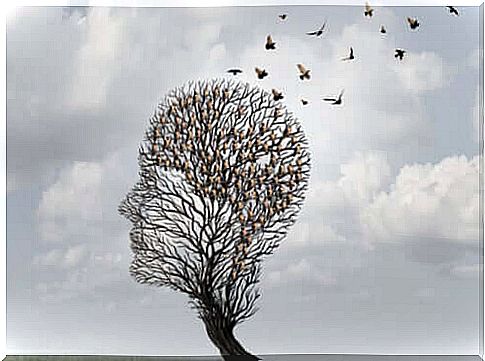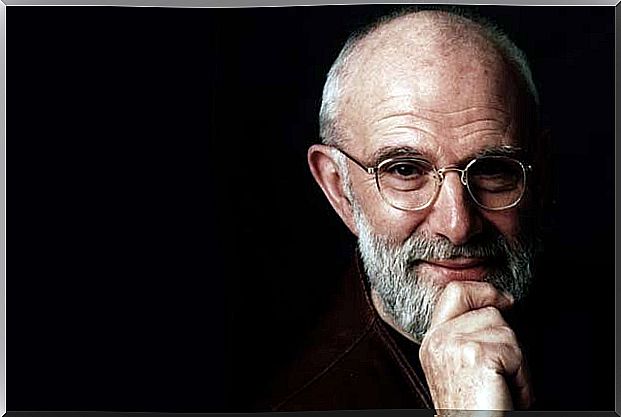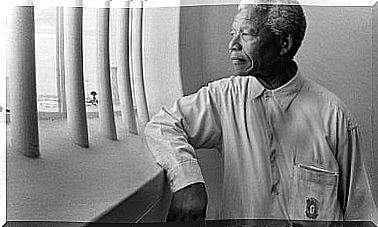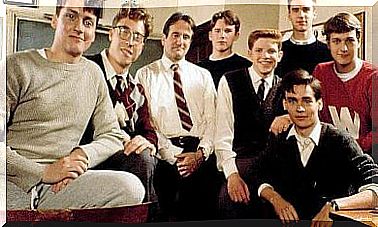The Case Of The Lost Sailor

The case of the lost sailor is really fascinating, although it was a real tragedy for its protagonist. He talks about one of the many consequences alcoholism can have on cognitive functions. In some cases, these sequelae do not appear in the short term, but manifest themselves over time.
The protagonist of the lost sailor case was a man named Jimmie G. He is described as an intelligent, friendly, cheerful, and conversationalist. At first glance, it didn’t seem to have any special features. His mood was calm and affable.
He arrived at a nursing home with an cryptic remark that didn’t seem to match him. This note described him as “helpless, mad, confused and disoriented.” So it was obvious that he needed to be treated by a neurologist. I was lucky to find Dr. Oliver Sacks, someone especially sensitive and open.

A revealing query
The first consultation started completely normal. Jimmie G. spoke about his past with great joy and enthusiasm.
He had been a radio operator in the Navy and held an alternate position in the submarines, a matter that filled him with pride and brought back wonderful memories.
The protagonist in the case of the lost sailor had a large head of white hair. He responded with remarkable accuracy to data relating to his hometown and even offered to make a map of the place. He also spoke affectionately about his place of origin, his school, his love of math, and even remembered the phone numbers from his childhood.
What excited him most was talking about his experiences in the Navy and telling about the missions he had completed. He would like to continue working there, but he preferred to go to university.
The neurologist noticed something special in his way of referring to the past. When Jimmie talked about childhood, he used the past tense, but when he referred to the Navy, he spoke in the present tense.
The case of the lost sailor and the memory
When the neurologist noticed this quirk, by simple intuition, he asked Jimmie what year it was. The patient was very surprised by the question and naturally replied: “In 1945”. And he added: “We won the war.”
Faced with this curious response, Dr. Sacks asked about his age. Once again surprised, Jimmie responded 19 years old.
Clearly Jimmie was confused. Then, on an unthinking impulse, the neurologist grabbed a mirror and placed it in front of him. He wanted the man to see with his own eyes that he had white hair, wrinkles in his face and was definitely not young.
Although Dr. Sacks was eager to confront him with his mistake, the effect was startling. Jimmie was shocked and couldn’t believe what he was seeing. He thought it was a joke or a nightmare. He also wondered if he was crazy. For him, the image in the mirror did not correspond at all to the image he had of himself.

a revealing fact
The neurologist understood his mistake and turned the conversation to other matters. He made Jimmie forget about the mirror and the reflected image. Later, the doctor had to be away for a while.
When he returned, Jimmie was totally unable to recognize him. It was like he had never seen him in his life. That fact gave Sacks the key to getting an idea of what was going on.
The case of the lost sailor has to do with a problem called “anterograde amnesia”. This problem has to do with the inability to store short-term memories. You remember everything that happened before the amnesia, but you don’t remember what happened five minutes ago. That’s what happened to Jimmie.
Upon inquiring about his past, he discovered that Jimmie had been an alcoholic for many years. This damaged his brain, creating a condition called Korsakov’s syndrome.
Every alcoholic person can suffer from this problem, because alcohol alters the metabolism of vitamin B1 and this ends up affecting the central nervous system.
The case of the lost sailor is not only a neurological rarity, it is also a human tragedy. Not having short-term memory means not having life. Memory is a fundamental part of our identity, and not storing memories plunges us into a limbo where time does not pass.









